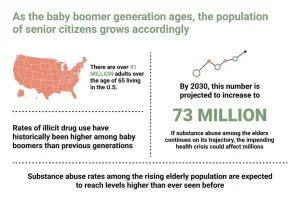
Secondary conditions can develop as a result of a person having a FASD. FASD is completely avoidable if you do not drink alcohol while you’re pregnant. In the United States, about 90% of adults report use at some point. celebrities with fetal alcohol syndrome It is a causal factor in more than 200 diseases and injury conditions, and it causes more than 90,000 deaths each year.” Amelia Burgess, MD, MPH, FAAP, FASAM, is a board-certified pediatrician and addiction specialist.
Professional Tools & Resources

Alcohol in the baby’s system can kill developing brain cells, slow growth of the brain, interfere with the neural connections in the brain, and affect other organs. Often mothers who drink have poor eating habits that also affect the baby. There is no known safe level of alcohol consumption during pregnancy. FAS is 100% preventable when a woman abstains completely from alcohol consumption during her pregnancy. If a baby has exposure to alcohol in the womb, they can develop a range of conditions known as fetal alcohol spectrum disorders (FASDs). The most severe of these disorders is fetal alcohol syndrome (FAS).
Can you prevent FASDs?
- Alcohol use in pregnancy has significant effects on the fetus and the baby.
- Fetal alcohol spectrum disorders (FASDs) are a group of conditions that may occur when a baby is exposed to alcohol during pregnancy.
- Having a fetal alcohol spectrum disorder can have profound effects on a person’s health, behavior, and overall well-being.
- Although more research is necessary, some studies show that the craniofacial differences of people with FAS may improve during or after adolescence.
Fetal alcohol syndrome is one form of fetal alcohol spectrum disorder (FASD). FASDs can affect how a child’s body, behavior, and brain develop as they grow up, and these effects can last throughout a person’s life. “Even a small amount of alcohol at a critical time during pregnancy can cause problems for children, such as lower IQ, attention deficits, impulsivity, and birth defects,” he says. A study demonstrated that more than one-half of children with fetal alcohol spectrum disorders do not consume the recommended dietary allowance of fiber, calcium, or vitamins D, E, and K. Early diagnosis is important so intervention programs can be started such as speech therapy, physical therapy, and special assistance in school. Counseling and treatment programs can also help women struggling with alcohol abuse.
- Fetal alcohol syndrome isn’t curable, and the symptoms will impact your child throughout life.
- If you are consuming alcohol and trying to become pregnant or you are currently pregnant, reach out to a healthcare provider for help quitting.
- However, excessive drinking over time before conception can have an impact.
- Once the condition has been diagnosed, a team of healthcare professionals can assess your child’s needs and offer appropriate educational and behavioural strategies.
- Fetal alcohol syndrome is one of the five disorders that comprise fetal alcohol spectrum disorders (FASD).
- An individual with FAS may have noticeable changes to their face and limbs, as well as delays in the way their body develops over time.
Fetal Alcohol Syndrome (FAS) Diagnosis & Treatments
- Not only can this prevent fetal alcohol syndrome disorders in future children, but it can also provide parenting skills to help their child with fetal alcohol syndrome.
- The challenges that occur along with fetal alcohol syndrome can be difficult to manage for the person with the condition and for the family.
- Partial fetal alcohol syndrome (pFAS) may be diagnosed if a child has at least two of the typical facial features and a mix, but not all, of the required criteria for FAS.
- The symptoms of fetal alcohol syndrome vary from child to child but are lifelong.
- Fetal alcohol syndrome (FAS) is a condition that develops in a fetus (developing baby) when a pregnant person drinks alcohol during pregnancy.
These and other effects of FASDs can negatively affect social interactions. Many children born with FAS have smaller heads than those without the condition. People with FAS may have distinctive facial features, which range from small eye openings to a flat nose bridge. In 2019, CDC researchers found that 1 in 9 pregnant people drank alcohol in a 30-day period of time. These effects may reduce fertility and, therefore, lower the chances that the sperm can fertilize an egg.
For people trying to get pregnant

We also discuss how people can prevent FAS and when to see a doctor. Other helpful resources include Alcoholics Anonymous (AA) and the Substance Abuse and Mental Health Services Administration (SAMSHA). It’s important to understand that FASDs can result from occasional drinking as well. Prevention of FAS can help reduce the costs of healthcare and, more importantly, ensure that the children will have a better quality of life and normal functioning. Besides affecting the fetus, alcohol can induce the risk of spontaneous abortions, preterm delivery, placental abruption, stillbirth, and amnionitis. The symptoms of FASDs may resemble other medical conditions or problems.
- FAS is characterized by prenatal alcohol exposure (PAE), craniofacial (head and face) differences, neurodevelopmental abnormalities (including behavioral issues), and growth impairment.
- FASD can affect children in profound ways—physically, mentally, and emotionally.
- Most people with an FASD have most often been misdiagnosed with ADHD due to the large overlap between their behavioral deficits.
- Infants with FAS often are irritable, overly sensitive to noise, behind in their development, have trouble eating and sleeping, have too little or too much muscle tone, and don’t like to be held.
